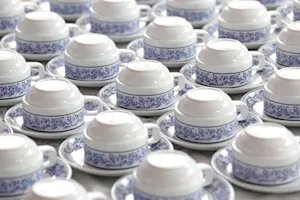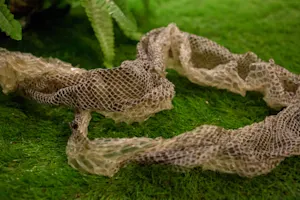What Makes This Word Tick
"Antiseptic" is a word that simply exudes cleanliness. It's the go-to term for anything that prevents infection by inhibiting the growth of microorganisms. Think of it as the guardian angel of cuts, scrapes, and our overall health. It's a stalwart in hospitals and medicine cabinets alike, standing ready to fend off the evil intentions of germs.
If Antiseptic Were a Person...
Imagine antiseptic striding around as a diligent nurse from the 1950s, complete with a spotless white uniform and a reassuring smile. This person would be thorough and meticulous, always ensuring everyone is safe and sound. Probably the type to carry hand sanitizer and offer you a fresh bandage with a comforting pat on the back.
How This Word Has Changed Over Time
The concept of antiseptic practices dates back centuries, but the word itself gained prominence in the 19th century with the rise of germ theory and advances in medical practices. From its original association with treatments like phenol, today it’s linked with everything from alcohol swabs to antibacterial soaps.
Old Sayings and Proverbs That Use Antiseptic
While not peppered throughout old proverbs like other words, you might hear someone say, "A little antiseptic goes a long way," which could suggest that sometimes prevention is more beneficial than trying to find a cure after the fact.
Surprising Facts About Antiseptic
Did you know Listerine was originally marketed as an antiseptic floor cleaner? Before minty-fresh breath, it helped keep surgeries sterile! And up until the late 1800s, surgeries were often done in unsanitary conditions — antiseptic procedures truly revolutionized the safety of medical practices.
Out and About With This Word
You'll likely spot "antiseptic" in drugstores, hospitals, and grandma's medicine cabinet. Whether it's a tiny tube of ointment or a bottle of hand gel, it's a trusty sidekick in battling uninvited germs in everyday life.
Pop Culture Moments Where Antiseptic Was Used
In the 1970s, an ad for a popular antiseptic mouthwash claimed, “Kills germs that cause bad breath.” It’s stuck in our heads not only for its promise of cleanliness but also for drilling home the idea that cleanliness starts in the mouth!
The Word in Literature
Antiseptic wouldn't be out of place in a medical drama or thrilling hospital scene. Think of stories that pivot on the brink of life and death, where cleanliness and infection control play starring roles. Authors of medical thrillers often weave antiseptic procedures into their suspenseful narratives to heighten tension.
Moments in History with Antiseptic
The Crimean War's nursing legend, Florence Nightingale, would have loved antiseptics. Though they weren’t in widespread use during her time, her insistence on cleanliness set the stage for antiseptic practices that later transformed military and civilian hospitals alike.
This Word Around the World
Globally, antiseptic practices have varied based on cultural methods of healthcare. In some traditional Chinese medicine practices, herbal solutions took on antiseptic roles, while in the Western world, chemical solutions like alcohol and iodine have been staples.
Where Does It Come From?
The word “antiseptic” derives from the Greek "anti," meaning against, and "septikos," meaning putrefying. Put them together, and you've got a word that’s literally fighting decomposition — quite the hero in our daily health regimens!
How People Misuse This Word
People often confuse "antiseptic" with "antibiotic." While both fight bacteria, antiseptics are for surfaces and skin, while antibiotics work internally. It's a common slip-up that can muddle conversations about medicine.
Words It’s Often Confused With
Antibiotic: As mentioned, this tackles bacteria within the body, not on the surfaces or skin.
Disinfectant: Stronger than antiseptics, disinfectants aren’t safe for human tissue and are used on inanimate surfaces.
Sterile: While antiseptics help achieve sterilization, “sterile” refers to the complete absence of all forms of life, including spores.
Additional Synonyms and Antonyms
Synonyms might include germicide or bactericide. Antonyms could be something like contaminate or infect, both of which introduce unwanted germs rather than repel them.
Want to Try It Out in a Sentence?
How about: "After the grandkids scraped their knees playing outside, I made sure to apply antiseptic cream to prevent any chance of infection."
















